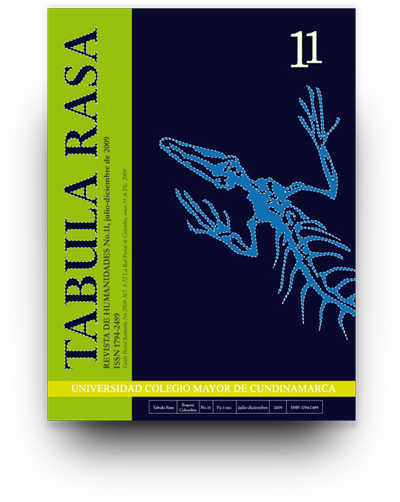A new age in the history of philosophy: the global dialogue between philosophical traditions
Una nueva edad en la historia de la filosofía: el diálogo mundial entre tradiciones filosóficas
Show authors biography
This paper argues the following points: 1. It is necessary to affirm that all of humanity has always sought to address certain “core universal problems” that are present in all cultures. 2. The rational responses to these “core problems” first acquire the shape of mythical narratives. 3. The formulation of categorical philosophical discourses is a subsequent development in human rationality, which does not however negate all mythical narratives. These discourses arose in all the great urban Neolithic cultures (even if only in initial form). 4. Modern European philosophy confused its economic, political and cultural domination, and the resulting crises in other philosophical traditions, with a Eurocentric universality claim, which must be questioned. 5. In any case there are formal universal aspects in which all regional philosophies can coincide, and which respond to the “core problems” at an abstract level. 6. All of this impels entry into a new Age of inter-philosophical dialogue, respectful of differences and open to learning from the useful discoveries of other traditions. 7. A new philosophical project must be developed that is capable of going beyond Eurocentric philosophical Modernity, by shaping a global Trans-modern pluriverse, drawing upon the “discarded” (by the Modernity) own resources of peripheral, subaltern, postcolonial philosophies.
Article visits 427 | PDF visits 103
Downloads
Embree, Ainslie Thomas, Stephen N. Hay y William Theodore De Bary. 1988. Sources of Indian Tradition from the beginning to 1800. Columbia University Press, New York
Fornet-Betancourt, Raúl. 2004. Crítica intercultural de la Filosofía Latinoamericana actual. Trotta, Madrid.
Goichon, A.-M. 1938. Lexique de la Langue Philosophique D´Ibn Sina (Avicenne). Desclée de Brouwer, Paris.
Hegel, Georg Wilhelm Friedrich. 1955 [1830]. Die Vernunft in der Geschichte, Zweiter Entwurf.
en Sämtliche Werke, Ed. J. Hoffmeister, F. Meiner, Hamburg.
Hegel, Georg Wilhelm Friedrich. 1975 [1830]. Lectures on the Philosophy of World History, Introduction: Reason in History, Cambridge University Press, Cambridge. 1975, p. 197.
Hegel, Georg Wilhelm Friedrich. 1970. Vorlesung über die Philosophie der Geschichte, en Werke. Suhrkamp, Frankfurt.
Hegel, Georg Wilhelm Friedrich. 1900. The Philosophy of History. Colonial Press, New York.
Hountondji, Paulin. 1977. Sur la philosophie africaine. Critique de l´ethnophilosophie, Maspero, Paris.
Husserl, Edmund. 1970. Crisis of European Sciencies. NorthWestern University Press, Evanston.
Husserl, Edmund. 1962. Die Krisis der europäischen Wissenschaften, Nijhoff, Haag. León-Portilla, Miguel. 1979. La filosofía náhuatl. UNAM, México.
Pomeranz, Kenneth. 2000. The Great Divergence. China, Europe and the Making of the Modern World Economy. Princeton University Press, Princeton.
Ricoeur, Paul. 1964. «Civilization universelle et cultures nacional», en Histoire et Verité, Seuil, Paris.
Ricoeur, Paul. 1963. La symbolique du mal, Aubier, Paris.
Semerano, Giovanni. 2005. La favola dell´indoeuropeo. Bruno Mondadori, Milano.
Slingerland, Edward. 2003. Confucius Analects. Hackett Publishing Company, Indianápolis.
Sobrevilla, David. 1999. Repensando la tradición de Nuestra América. Banco Central de Reserva del Perú, Lima.
Tempel, Placied. 1949. La philosophie Bantue. Présence Africaine, Paris.
Wallerstein, Immanuel. 1980-1989. The Modern World-System. Academic Press, New York.
Wieger,Léon. 1950. Tao Te-king. Ed., Les Pères du Système Taoïste, Les Belles Lettres, París.
Yabri, Mahomed Abed. 2001. Crítica de la razón árabe. Icaria-Antrazyt, Barcelona.
Yabri, Mahomed Abed. 2001. El legado filosófico árabe. Alfarabi, Avicena, Avempace, Averroes, benjaldun. Trotta, Madrid.




